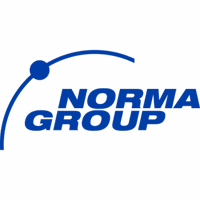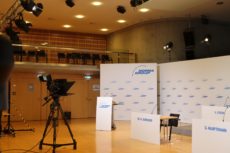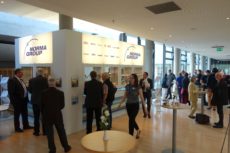This post is also available in: Deutsch
The Annual General Meeting is the most senior governing body of a stock company. As is the case with the members of a club or association, the shareholders of a company also have the right to vote once a year on the performance of the Management Board and Supervisory Board over the course of the past financial year and either approve their actions – or not. Important plans for the future also depend on the votes of the shareholders. This text explains why the processes at an Annual General Meeting can be traced back to the founding spirit of some sports clubs and the central role played this year at NORMA Group by three female colleagues who were actually not even part of the preparation team.
“Wow, this is a really exclusive event!”, was what popped into my head when my predecessor was telling me last February about some of the most important procedures. She was still working at NORMA Group at the time and I hadn’t joined the company yet, so one afternoon we did a verbal handover. I have never experienced such a special Annual General Meeting with only 50 to 70 external participants. At that point, I would not have guessed that this was a real team event in which our colleagues at reception in Maintal together with our much appreciated cleaning staff would play a key role – but we’ll get back to that a little bit later.
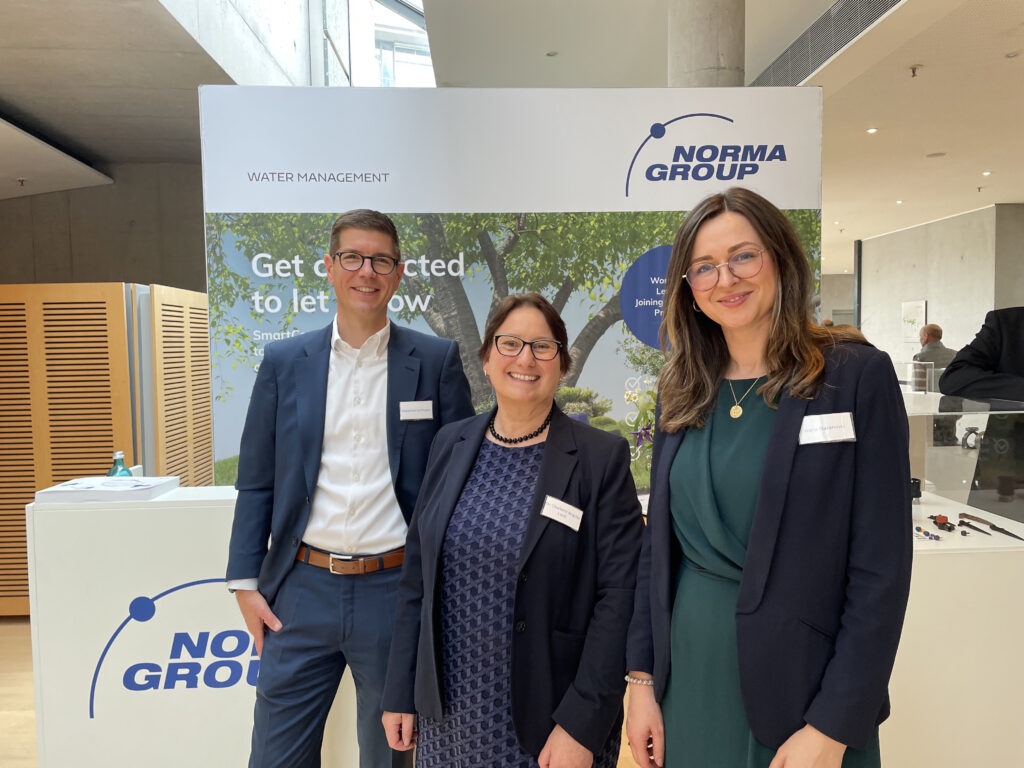
The organizational team with Sebastian Lehmann, Dr. Charlotte Brigitte Looß and Ivana Blazanovic (left to right)
A special tradition in Germany
Until then, I wasn’t aware that annual general meetings could be held in the German National Library in Frankfurt am Main. I have been attending and organizing shareholder meetings of stock companies for the last 25 years. The most exotic location that I have ever been to was the equestrian arena at Hagenbeck’s zoo in Hamburg, where a technology company hosted its annual general meeting at the turn of the millennium. In contrast to most other countries, the annual general meeting has a special significance in Germany – for some people it has the status of a glamorous event. In many other countries, on the other hand, it is a purely administrative and technical affair.
The reason for the different approach in Germany is that the democratic structure of the shareholders’ meeting is closely based on the organizational structure of the general meetings of clubs and associations. In the middle of the 19th century, shortly after the great German democracy movement was brought to an end, citizens began to withdraw from public life and into more private endeavors. They founded clubs, especially sports clubs, with the goal of expressing their longing for a more democratic society. Equality, justice and national unity took center stage in an attempt to put an end to the arbitrary rule of local petty rulers. Numerous club names such as “Eintracht Frankfurt”, “Arminia Bielefeld” and “1860 München” continue to serve as a testament to this era.

Keeping an eye on the entrance: Holger Loehr and Dan Ochs (left to right)
This founding spirit has never been completely lost and has been transferred to the idea of how shared ventures should be run. That is why there is still a hint of revolution in shareholder democracy today.
Consensus and compromise are key
This was the case when I attended the Annual General Meeting of a large German company as a journalist in 2019. The event filled the Festhalle, a large arena in Frankfurt where the world’s biggest rock bands usually perform. Everyone in the arena on that day expected that the Chairman of the Supervisory Board to step down by the end of the day – either voluntarily or involuntarily. It was assumed that the democratic forces among the shareholders would sort things out, but things did not turn out that way because annual general meetings rarely work like that.
Continuity is very important for companies; unforeseen events can cause serious disruption to operations. It would be unwise, therefore, for the Management Board and Supervisory Board not to have ascertained before the meeting what the current majorities would be. Does that seem a little undemocratic? Well, perhaps, but democracy thrives on consensus and compromise.
That’s why a company’s management takes a close look at the current mood before the meeting and tries to eliminate any potential sensivities from the outset. Things only get really awkward if there have already been public expressions of intent from individual shareholders or even campaigns before the annual general meeting. In spite of all of that, no one can predict the exact result of a vote. Opinions can change, even during the meeting. That is why the general debate is so important.
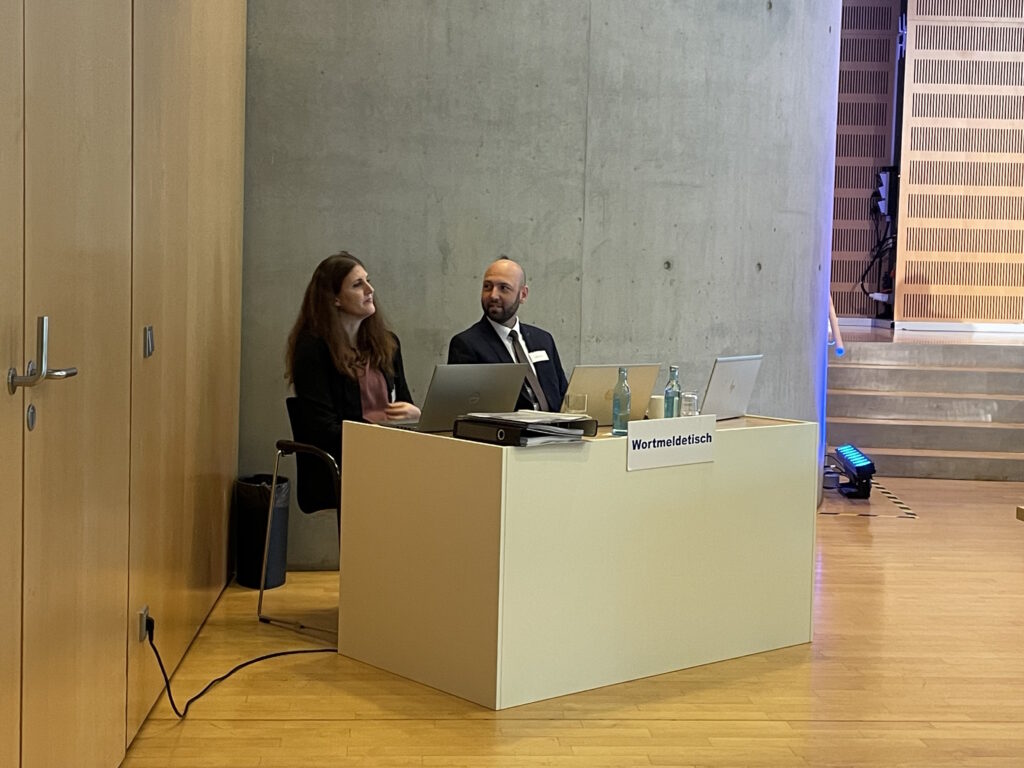
Nadine Leonhardi and Heiko Klotz collect the request to speak cards
At NORMA Group, a shred of paper could have led to disaster
The mechanisms described here also apply at NORMA Group. The Management Board and Supervisory Board, together with the relevant departments, also got an idea of the current mood long before the shareholder meeting. A team of 30 people considered possible questions and how to answer them weeks in advance. On the day of the event itself, a team from various departments ensures that everything runs smoothly.
If a mistake is made here, there is a risk that a shareholder will challenge the validity of the meeting, which would then have to be repeated. A number of specialized experts work in the back office to support the Management Board in answering shareholders’ questions. Because any incomplete answers can be made a matter of record and used as a basis for legal disputes.
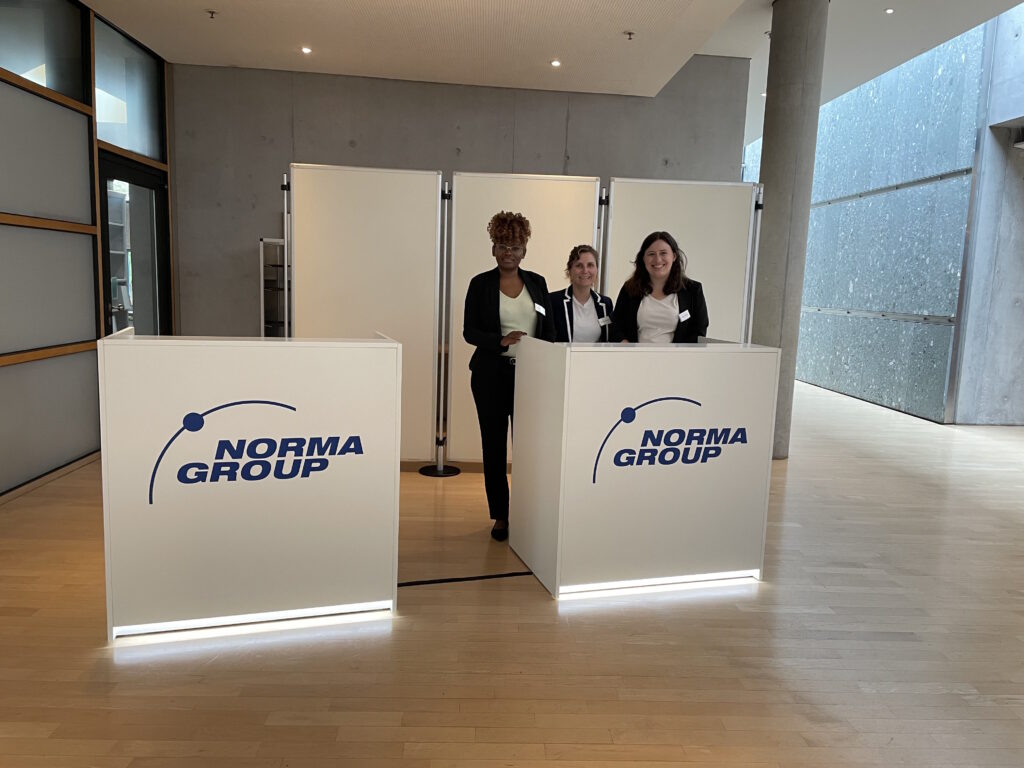
Welcoming the shareholders: Leah Gichiriri, Julia Bergmann and Miriam Reith (from left to right)
The devil, of course, is in the detail and there was an incident that jeopardized the proper conduct of the Annual General Meeting three weeks before it took place. The issue in question was the few registration forms that had arrived by post. When someone registers for the Annual General Meeting, this does not necessarily mean that they actually want to attend in person. Many only register their shares so that the resulting voting rights can be exercised. They transfer them, together with voting instructions, to designated proxies.
But when one of these letters was opened, the machine had damaged the voting sheet and the instruction on the approval of the actions of the Chairman of the Supervisory Board had been torn out. So neatly, in fact, that nobody even noticed at first. By the time the damage was noticed, the paper scraps had long since been thrown in the garbage can and then in the container. Cleanliness in the workplace is, after all, a top priority at NORMA Group!
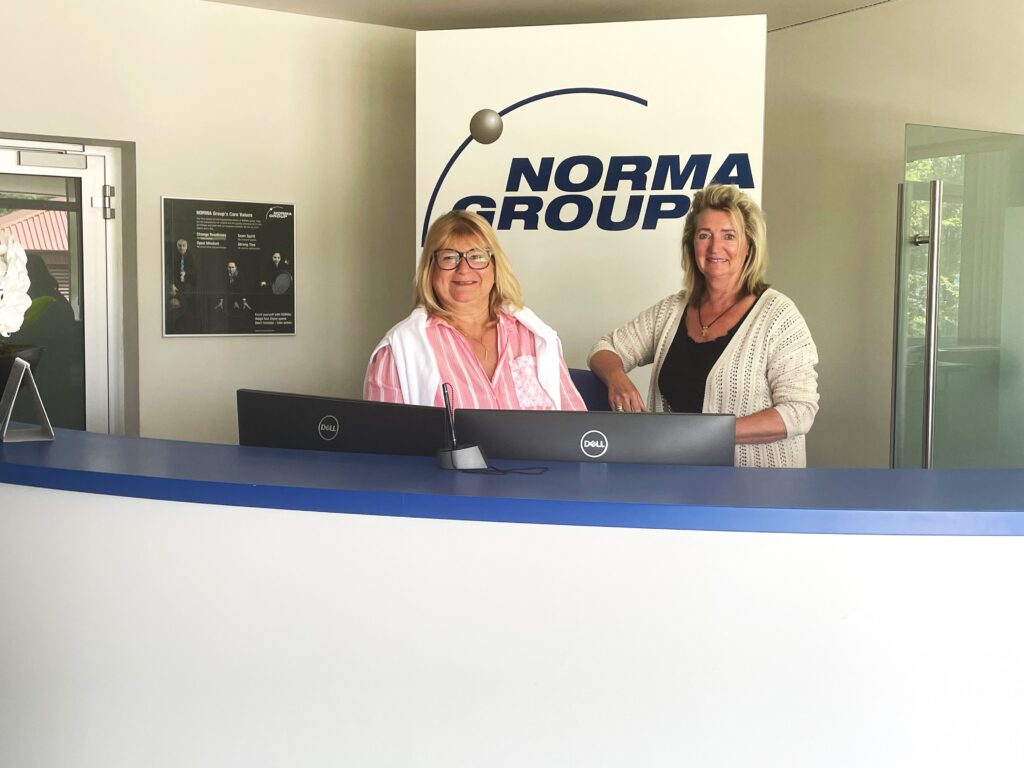
Contributed actively to the success of the Annual General Meeting: Katrin Kaiser and Pascale Neuhaus (from left to right)
The fact is, however, that the proxies absolutely need instructions on how to vote. The instructing shareholder can demand proof that the voting rights have been properly exercised. So our cleaning staff retrieved the garbage from the container and rummaged through the overflowing bag with their colleagues from reception. Until they found the small strip with the check mark next to “Approval”. This was a true demonstration of company culture and genuine team spirit! And it was rewarded with an overwhelming vote of well over 90 percent on all items on the agenda.
I can now confirm that NORMA Group’s Annual General Meeting is indeed an exclusive affair. Not only that, it’s also a real team effort!
Impressions of this year’s Annual General Meeting can be found here:
